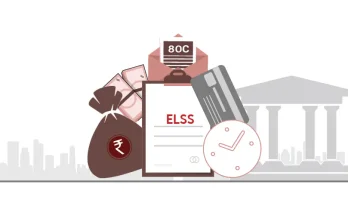Every successful business—big or small—has one thing in common: good budget management. Even if your business brings in strong sales, it won’t matter much if you’re not managing your cash flow wisely. Poor budgeting can lead to overspending, missed opportunities, and financial instability.
Many businesses still rely on tools like Microsoft Excel or Google Sheets to create and track their budgets. But as useful as spreadsheets can be, they come with a high risk of error. In fact, studies show that nearly nine out of ten spreadsheets contain mistakes. These errors may seem small at first but can lead to major losses—especially when your business grows and transactions increase.
That’s why using business budgeting software is such a smart investment. These tools help finance teams automate processes, save time, and reduce errors. And with so many options out there, there’s a solution for every kind of business—from solo entrepreneurs to large corporations.
In this article, we’ll break down what budgeting software does, why it matters, and the top 7 tools you should consider based on your business size and goals.
What Is Business Budgeting Software?
Business budgeting software is a digital tool that helps companies manage their finances by automating the budgeting process. Instead of tracking expenses and income manually, this software keeps everything organized and updated in real time.
Here are some key features most budgeting tools offer:
- Live Expense Tracking: Know how much money is coming in and going out at any time. This helps prevent overspending and gives better insight into where your money is going.
- User-Friendly Interface: A good budgeting tool should be easy for everyone to understand—not just your finance team. This makes collaboration across departments smoother and more effective.
- Automation of Repetitive Tasks: By reducing the need for manual data entry, these tools save time and allow your team to focus on more important work.
- Cloud-Based Access: Most modern budgeting software works online, so you can access your data from anywhere. Whether you’re at the office or on a trip, your budget is always just a click away.
7 Budgeting Tools to Help Finance Teams Succeed
Let’s look at some of the best budgeting tools available today. Each tool serves a different business size or need, so choosing the right one depends on where your business is and where you want it to go.
Best Budgeting Tools for Small Businesses and Solopreneurs
1. QuickBooks
QuickBooks is one of the most popular tools for small businesses and freelancers. It handles basic accounting tasks such as tracking income and expenses, sending invoices, managing payroll, and creating budgets. You can connect your bank accounts, credit cards, and apps to get a full picture of your business finances.
Best Features:
- Great for managing all basic financial tasks in one place
- Easy to use for small teams
- Excellent support and training resources
- Works on desktop and mobile
2. FreshBooks
FreshBooks is built with small teams and solo entrepreneurs in mind. It offers simple tools for budgeting, tracking expenses, sending invoices, and estimating cash flow. It’s especially useful for service-based businesses that need fast, easy-to-understand reports.
Best Features:
- Clean, easy-to-use dashboard
- Unlimited expense tracking
- Great for freelancers or businesses with up to 50 employees
- Mobile-friendly and affordable
3. FreeAgent
FreeAgent is a cloud-based tool made for small businesses that need a simple solution. It automates routine tasks like sending invoices, tracking expenses, and keeping an eye on your cash flow. While it’s not highly customizable, it’s perfect for those who want an easy setup with no steep learning curve.
Best Features:
- Helps beginners handle basic accounting with ease
- Saves time through automation
- Offers real-time financial snapshots
Budgeting Tools for Medium to Large Businesses
If your business is growing fast and you need more advanced features—like planning for multiple departments, locations, or products—these tools are built for you.
4. Centage (Planning Maestro)
Centage is ideal for companies that want deeper financial insights. It allows finance teams to build detailed budgets, forecast different financial scenarios, and analyze how different decisions will impact the business. While it’s more advanced, it doesn’t support mobile use and is designed for desktops.
Best Features:
- Strong forecasting and scenario planning
- Helps finance teams make smart, informed decisions
- Pulls in data from multiple sources for greater accuracy
5. Workday Adaptive Planning
Workday Adaptive Planning is designed for medium to large businesses that need robust planning tools. It’s cloud-based and removes the need for spreadsheets by automating budgeting, forecasting, and reporting across all departments.
Best Features:
- Makes company-wide planning easy and efficient
- Helps teams model different “what if” scenarios
- Great for businesses that need to react quickly to market changes
Budgeting Tools to Help You Scale with Automation
When your business is scaling quickly, manual processes like approving expenses and tracking payments can slow you down. These tools help remove those obstacles by automating financial tasks and improving collaboration across teams.
6. Spendesk
Spendesk is a full spend management solution that gives your business better control over how money is spent. It offers features like smart payment cards for employees, automated expense reports, and easy invoice management. It’s especially useful for companies that want to scale without losing visibility or control over their spending.
Best Features:
- Prevents budget surprises with real-time insights
- Simplifies invoice and reimbursement workflows
- Helps finance teams focus on strategic tasks instead of chasing receipts
7. Scoro
Scoro is more than just a budgeting tool—it’s a complete work management platform. It connects your budgeting with project planning, time tracking, and team productivity tools. This helps you understand not just how much you’re spending, but also how your team’s work contributes to your financial results.
Best Features:
- Combines budgeting with task and time management
- Real-time reporting and insights
- Integrates with popular tools like calendars and CRMs
How to Choose the Best Budgeting Tool for Your Business
To find the right tool, start by asking these questions:
- How big is your finance team?
- Do you need basic budgeting or advanced forecasting?
- Are you managing multiple projects, locations, or departments?
- Do you want to automate manual tasks and save time?
- Will your team need access on the go?
Smaller teams may be happy with affordable tools like FreshBooks or FreeAgent, while growing businesses may need something stronger like Centage or Adaptive Planning. If you want to improve productivity across the board, Spendesk or Scoro can support your goals by combining budgeting with workflow automation.
Final Thoughts
Business budgeting software is more than just a tool—it’s a way to take control of your company’s future. The right budgeting system helps you manage cash flow, reduce risk, and make smarter financial decisions.
Whether you’re just starting out or managing a growing finance team, there’s a tool out there that fits your needs and budget. With the right setup, you’ll spend less time fixing spreadsheets and more time building a stronger, more profitable business.




